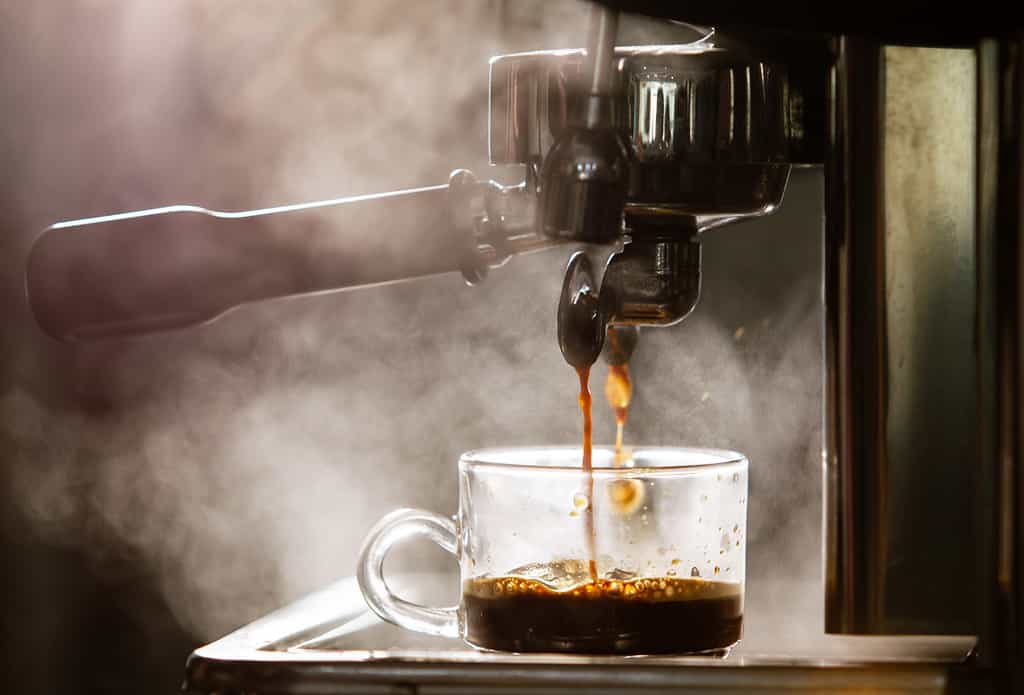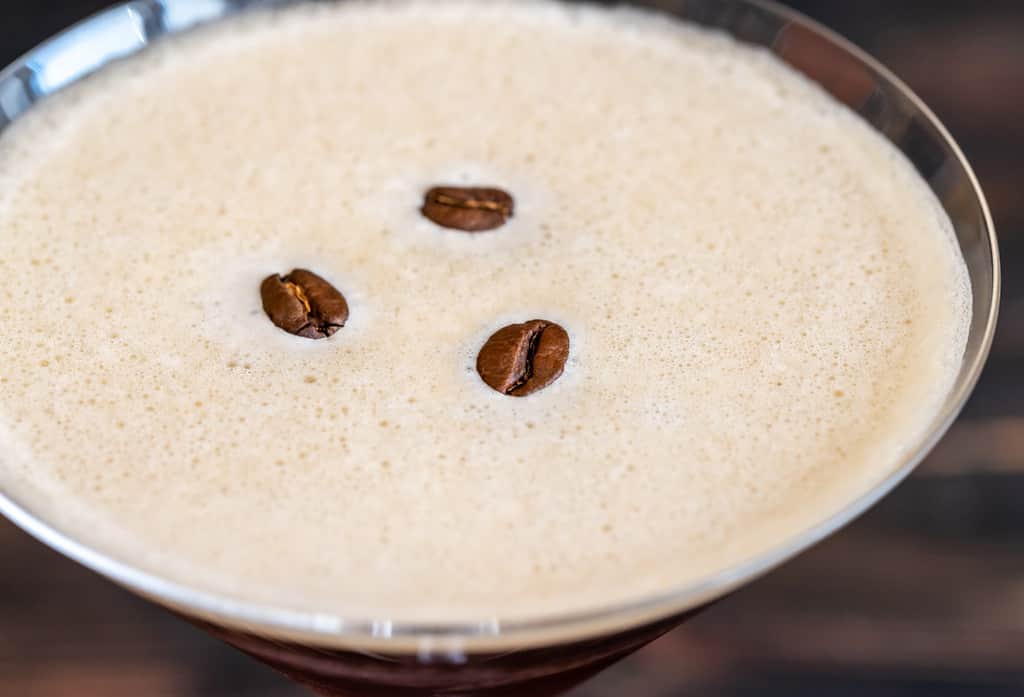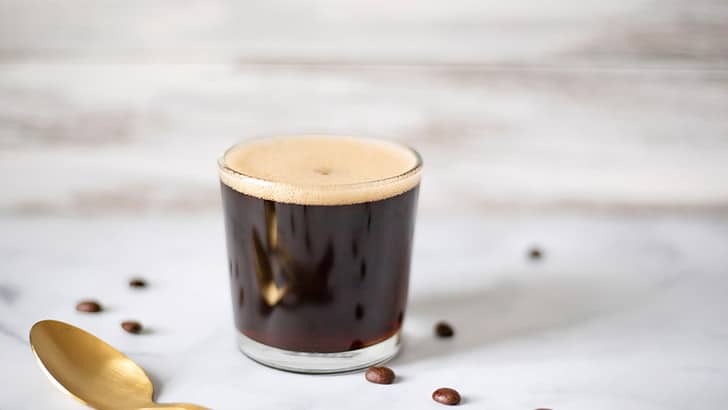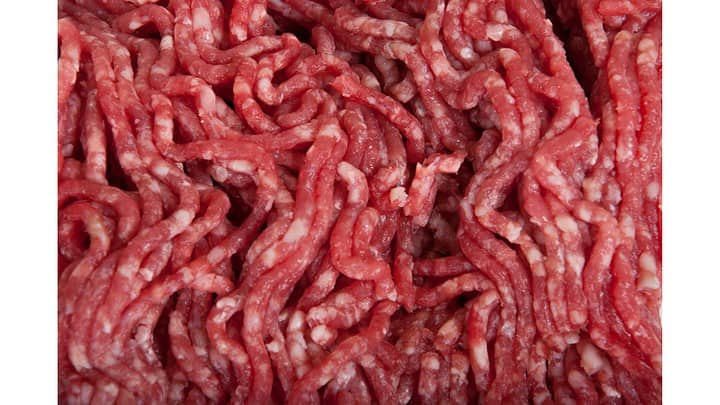Espressos are some of the most well-known caffeinated drinks that originate from the coffee bean today. Whether you’re in the mood for a pick-me-up or if you find yourself dragging just to get yourself through the day, a delicious espresso can often hit the spot.
If you’ve ever tasted espresso and something is not quite right, there may be a reason. If you’ve ever tasted espresso and it’s too salty and not as flavorful as you remember, this can be due to a few different factors.
Your espresso may taste salty due to the type of roast beans that are being used to create your espresso. However, it is often mostly due to under-extraction when it comes to making the actual espresso itself.
It is also possible that the grounds being used to make the espresso are too fine, which can result in over-extraction and a funky taste. Knowing how to tell the difference can help you to tweak your own espresso-making preferences just to your liking.
Why is My Espresso Saltier Than Usual?

There are a few reasons why your espresso is saltier than usual. It is not always as simple as one fix, as espressos can begin to taste saltier for numerous reasons, not just one singular issue. Some of the most common reasons why your espresso tastes salty include:
- The freshness of beans: How old are the espresso beans you are using?
- Quality of beans: What type of beans are you using for your espresso? Are they designed for espresso beans? How fresh are they? Do they require specific ingredients and/or storage temperatures in order to remain intact in terms of quality?
- Espresso machine: Are you using your own espresso machine or French Press at home to make your own espressos? If so, what kind of machine are you using? Is it up to date? Does it require any cleaning, upgrades, or replacement? Faulty parts or machines may also end up causing unpleasant tastes in the drinks it produces if the issues are not identified and remedied asap.
- Fine grounds (over-extraction): If you are using coffee grounds that have been broken down too fine, you run the risk of over-extraction when making your espresso. This can result in a funky, salty, bitter taste that is not like your usual espresso taste.
- Too coarse of grounds: On the other end of the spectrum, it is also possible to experience under-extraction if you choose to use coffee grounds that are too coarse and are not as fine as they need to be for the perfect espresso. If the coffee grounds are too coarse, the espresso machine will underperform, under-extracting the necessary amount of caffeine and flavor from your preferred beans.
How Can I Tell if My Espresso is Over or Under Extracted?

When you are first getting started with an espresso machine or making espressos on your own, you may not be familiar with the process and all that it entails. In order to make the perfect espressos, it’s important to familiarize yourself with both under and over-extracted coffees and espressos themselves.
If your coffee is over-extracted, it is more likely to taste watered down, thin, slightly bitter, and in a sense, even hollow. You may find yourself wanting to taste more of your coffee, only to be let down.
If an espresso is under-extracted, however, you will notice that the coffee itself tastes increasingly sour, bitter, sharp, or downright offensive. This is typically due to the water not having enough time to soak in the espresso beans properly, allowing the sugars to break down and provide the necessary balance to the final result.
How Do I Make My Espresso Sweeter?

This will depend on the type of roast you are using and the method(s) utilized to create your espressos. Once you have your espresso-making method down and you are satisfied with the base taste of each of your espressos, you can then begin tweaking your recipe.
Adding a bit of water can help to thin out the flavor, releasing excess bean flavor that you may find overpowering. You can also consider the following add-ins to help make your espresso sweeter if you want to go beyond simple water:
- Milk/cream/heavy cream
- Creamer/sweetener designed for any type of coffee
- Sugar (or alternative sugar of your choice)
- Honey (depending on your own preferences and the type of coffee you prefer)
How Long Should It Take for an Espresso Machine to Pour an Espresso?

While this will vary based on the type of espresso machine you are using and the type of espresso you intend to make, typically, espresso requires anywhere between 25 and 35 seconds in total from start to finish (to complete a pour).
The best espresso machines typically take between 27 and 33 seconds to finish.
When a machine is done in 25 seconds or takes much longer than 35 seconds, you run the risk of experiencing an under-extracted or over-extracted espresso, which will likely taste flat, burnt, sour, or simply too thin for your liking.
Can I Make My Espresso Less Acidic?

Yes. This can be done using numerous ways, including both traditional baking soda or even a non-dairy option such as almond milk.
Adding either baking soda or an alternative dairy source to your espresso will not only help to reduce the acid in the coffee itself, but it will also lend a creamy smooth flavor that can truly allow you to enjoy the drink in front of you.
What Does it Mean if My Espresso Tastes Sour?

If you take a drink of espresso and you immediately notice sour notes, the chances of the espresso being under-extracted increase dramatically. Under-extracted espressos will taste more sour and pungent (with any herbal flavors being more noticeable than usual) and will also be less sweet than usual.
These are the obvious signs that your espresso has experienced under-extraction rather than over-extraction.
Can I Use Sugar to Cut the Acidity in My Coffee or Espresso?

Yes, you can use a range of sugars and sugar products to cut the bitterness and acid in any coffee-related product. However, sugars are not the most effective option (as alternative additives such as almond milk, water, or even baking soda).
If you are someone who struggles with heartburn due to drinking coffee, you may want to consider taking medication to manage your heartburn.
You can also opt for a pinch of baking soda in just one pot of coffee to help significantly reduce the amount of acid that is produced and consumed. Just one pinch of baking soda can help you to create a DIY low-acid espresso that can also result in the loss of the heartburn you experience each time you have a cup of Joe.
Related Questions
Do I need an espresso machine to make espresso at home?
Most often, yes. A simple affordable French Press machine is also a possibility for those who are not interested in investing hundreds, if not thousands, into a fancy espresso machine.
Why does my espresso taste soapier than usual?
Surprisingly, soapy-tasting coffee and/or espressos are not unusual. However, this may mean that you are dealing with under-extracted coffee, depending on your setup.
Oftentimes, when coffee tastes soap while attempting to make espresso, it is due to a lack of time spent between the coffee and the hot water you are using. This can also be a clear indication that the water you are using for your espresso is well, simply not hot enough.
Does salt eliminate bitterness from the coffee and/or espressos?
At times, some coffee aficionados claim that salt can do just that (in the right quantity and situation). If you notice that your espresso is a bit on the bitter side, you can add a pinch of salt to attempt to cut the bitterness, providing you with a much smoother and more enjoyable sipping experience.
What does baking soda do to coffee?
At times, some coffee lovers swear by adding baking soda to their coffees and/or espressos. This is often done if you are using a roast that may be burnt, outdated, or simply not of high quality.
Adding just a simple 1/4 of a teaspoon of baking soda into an entire pot of coffee has the power to cut the bitterness of any beans that may be outdated, burnt, or simply unappealing otherwise.
Why does my coffee or espresso remind me of cigarettes?
Even if you are not a cigarette smoker yourself, you may have noticed that at times, coffees and espressos have a touch of the smell of a cigarette (depending on the make and brand you choose).
Oftentimes, when coffee beans are burned at high temperatures, they can create additional products in the air that are reminiscent of the smell of pipe tobacco, wood, or even leather in some cases. The taste of each particular cigarette will vary by brand and by the type of factory they are manufactured in from start to finish.







